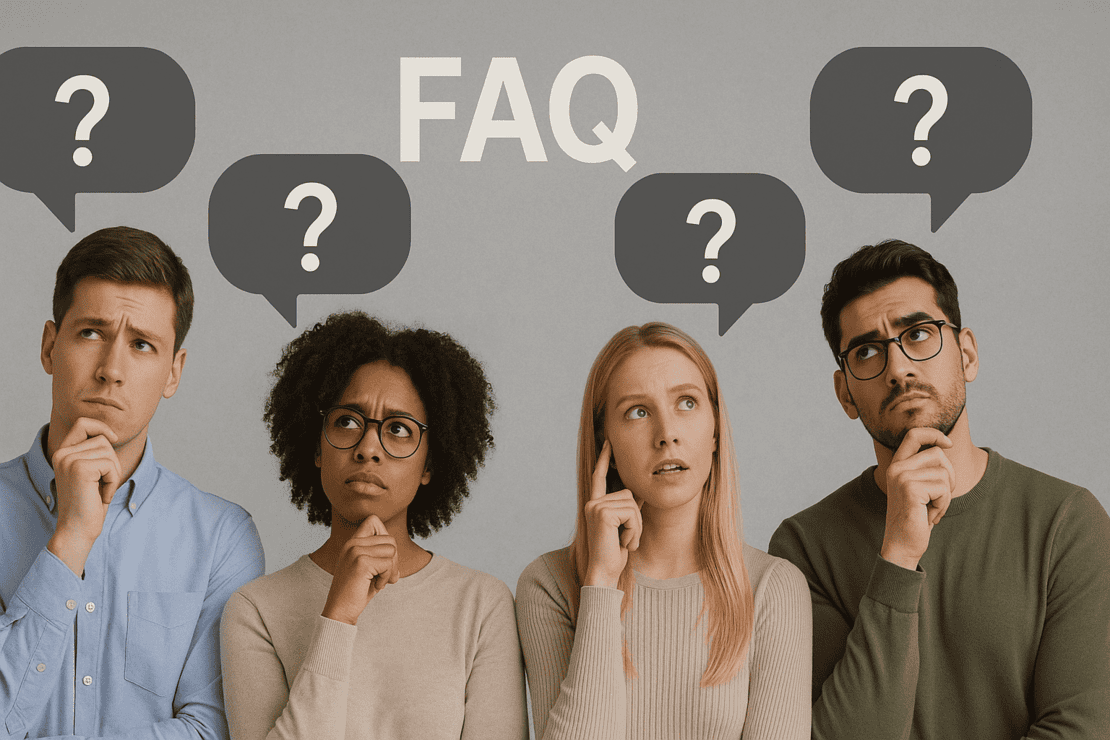🔐 Remote Online Notarization (RON) & Scam Concerns: FAQs
Worried about scams in online notarizations? You're not alone. This blog breaks down how Remote Online Notarization is built to protect signers with strict ID checks, state-approved platforms, and anti-fraud safeguards—even in a world of AI.

Q1: Can Remote Online Notarization be used to commit fraud?
A: While no system is entirely immune from attempted fraud, Remote Online Notarization platforms are among the most secure methods available for document verification. Every session is recorded, identity is verified through government-issued ID checks and knowledge-based authentication (KBA), and the notary is required to maintain an electronic journal and video recording—creating a verifiable audit trail that greatly deters fraud.
Q2: How do I know the notary platform being used is legitimate?
A: Only platforms that are approved by the commissioning state can be used for official online notary acts. These platforms must meet strict technological and security standards set by the Secretary of State, including encrypted video communications, identity verification protocols, and document storage requirements. Notaries must register with the state, disclose the exact platform used, and in many states, receive approval before performing any online acts.
Q3: What prevents someone from pretending to be me in an online notarization?
A: Online notary platforms use multi-layered identity verification tools. These include:
Knowledge-Based Authentication (KBA): Signers must answer questions based on personal and financial history.
Credential Analysis: The ID provided is scanned and analyzed using sophisticated AI to detect forgery or tampering.
Live Video Session: The notary compares your live appearance with your ID and confirms your willingness and awareness.
This makes impersonation far more difficult than in many traditional in-person scenarios.
Q4: Is my personal information safe on these platforms?
A: Yes. State-approved RON platforms must follow strict data security and privacy laws, including encryption, limited data access, and secure cloud storage for recordings and journals. Notaries are also trained to handle your personal information with care and are legally obligated to maintain confidentiality.
Q5: What happens if a fraudulent act is discovered later?
A: Each RON session is recorded and logged, which means any suspicion of fraud can be investigated thoroughly. Unlike in-person notarizations where memories may fade, video recordings and digital audit trails offer clear, timestamped evidence. This helps protect innocent parties and makes prosecution of fraud easier.
Q6: How is Remote Online Notarization more secure than traditional notarization?
A: In many ways, RON adds layers of protection:
Real-time recording of the notarization
Digital certificate and tamper-evident seal
Platform-level cybersecurity protocols
Stricter ID checks than many in-person sessions
Traditional notarization rarely includes recorded evidence, making RON a safer choice for high-stakes or long-distance transactions.
Q7: Can I choose the platform my notary uses?
A: The notary selects the platform they are commissioned to use and has registered with the state. However, if you have a preference, such as NotaryCam, BlueNotary, or Notarize (Proof), you may ask the notary if they are approved to use that platform. Rest assured, they can only perform notarizations through state-approved systems.
Q8: How do I know it’s a real notary and not an AI during the remote session?
A: That’s a smart question—and a valid concern in today’s tech-driven world. Remote Online Notarization platforms are designed for human-to-human interaction. Here's how you can be confident you're meeting with a real, commissioned notary:
✅ Live Two-Way Video: RON platforms require real-time, face-to-face video interaction. You will see the notary live on camera, speaking, responding, and guiding the process. AI-generated avatars or deepfakes cannot meet state legal standards for personal appearance and live communication.
✅ State Commissioned Identity: Before a notary is allowed to use an online platform, they must register with their state, disclose the platform they use, and in many states, even provide a sample live video or take additional training to prove they can conduct secure sessions.
✅ Personal Interaction: You’ll be asked to verify your ID, answer questions, and confirm your understanding of the document. A real notary must witness your actions, interact with you, and affirm your awareness. This can’t be automated or done by AI.
✅ Recorded Session: The entire session is recorded and archived by the platform. These recordings serve as evidence that a real notary—not a robot—conducted the session. If any concern arises, the video can be reviewed by officials for compliance.
✅ Legal Protections: Using AI in place of a commissioned notary is illegal and would invalidate the notarization. That’s why RON platforms undergo state approval and continual oversight to ensure human-led interaction.
Q9: How hard is it for someone to impersonate me if biometrics are used during Remote Online Notarization?
A: Extremely difficult. When biometric tools are used—such as facial recognition, liveness detection, or ID photo matching—they add an advanced layer of protection that goes beyond traditional identification.
✅ Liveness Detection: The system confirms that a real, live person is present—not a video recording, photo, or AI-generated replica. This prevents common impersonation tricks.
✅ Facial Recognition Matching: Your face is digitally compared to the ID you upload, ensuring alignment with the biometric data on file. Forging this would require advanced and illegal technology that’s nearly impossible to use in real time.
✅ Device Restrictions: Many platforms require the signer to use a camera-enabled device with access to biometric data, making it even harder for a third party to pose as you.
✅ State Compliance: Platforms that use biometrics must still be state-approved and compliant with privacy laws like GLBA and sometimes HIPAA, meaning your data is secure—and your identity is too.
In short, biometric authentication makes impersonation extremely unlikely, especially when combined with other layers like KBA, credential analysis, and live video interaction.
Final Thoughts
Remote Online Notarization is not just a modern convenience—it's a highly secure and state-regulated method for protecting your identity and your documents. While it's natural to have questions or concerns, especially in a world filled with technology and AI, RON platforms are intentionally built to prevent fraud, verify identities, and ensure your peace of mind.
Every approved platform goes through rigorous checks. Every notary must be commissioned, trained, and compliant. And every session is safeguarded with video records, digital certificates, and sometimes even biometric analysis.
When you choose a trusted, state-approved online notary, you’re not just getting a signature—you’re getting a secure, legal, and reliable service.
So whether you’re signing from across town or across the globe, you can rest assured: Remote Online Notarization is designed with your protection in mind.

